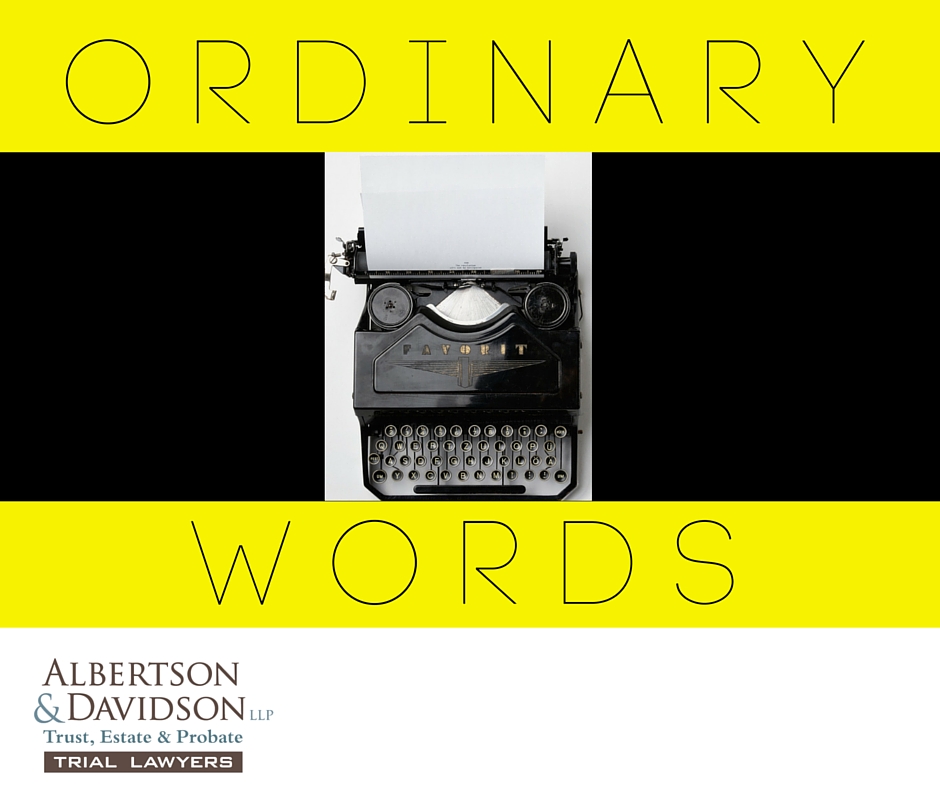
When a Court is asked to interpret a Trust or Will document, one of the primary rules of interpretation is Probate Code Section 21122, which requires that all words used in a Trust or Will be given their ordinary meaning.
That seems like an obvious rule—shouldn’t all words be given their ordinary meaning? But funny things can happen when Trusts and Wills are interpreted, especially by competing heirs who may prefer differing meanings.
A word may be subject to a technical meaning in some circumstances, but is otherwise used differently. For example, to sue someone in court you must have “standing.” That does not mean you have to get up out of your chair and stand there. It has a very different meaning legally—it means you have the legal right to bring the lawsuit.
The medical profession is full of these word switches too. If you test “positive” for a terrible disease, it is a very negative result as far as you are concerned.
Probably every profession has its fair share of regular words being used in an irregular fashion. But when it comes to interpreting a Trust or Will, the law just wants to go with the plain and ordinary meaning, nothing more.
Why? Because most people use words in their ordinary meaning when expressing themselves. And if you want to use an ordinary word in an extraordinary way, all you need to do is say that in your Trust or Will document. But if you fail to do so, then ordinary is presumed.
So the next time you draft up your Trust or Will, keep it simple.
